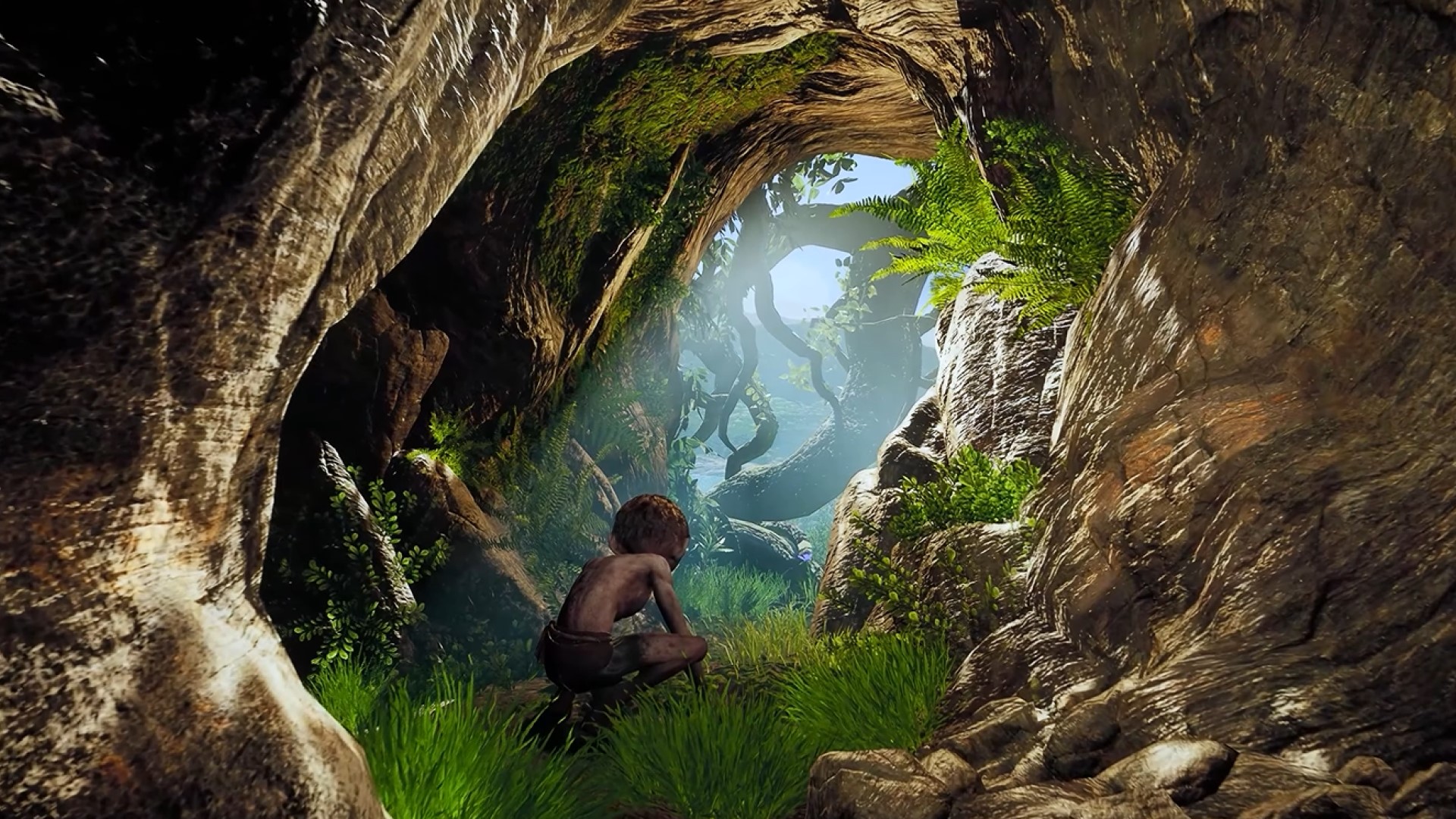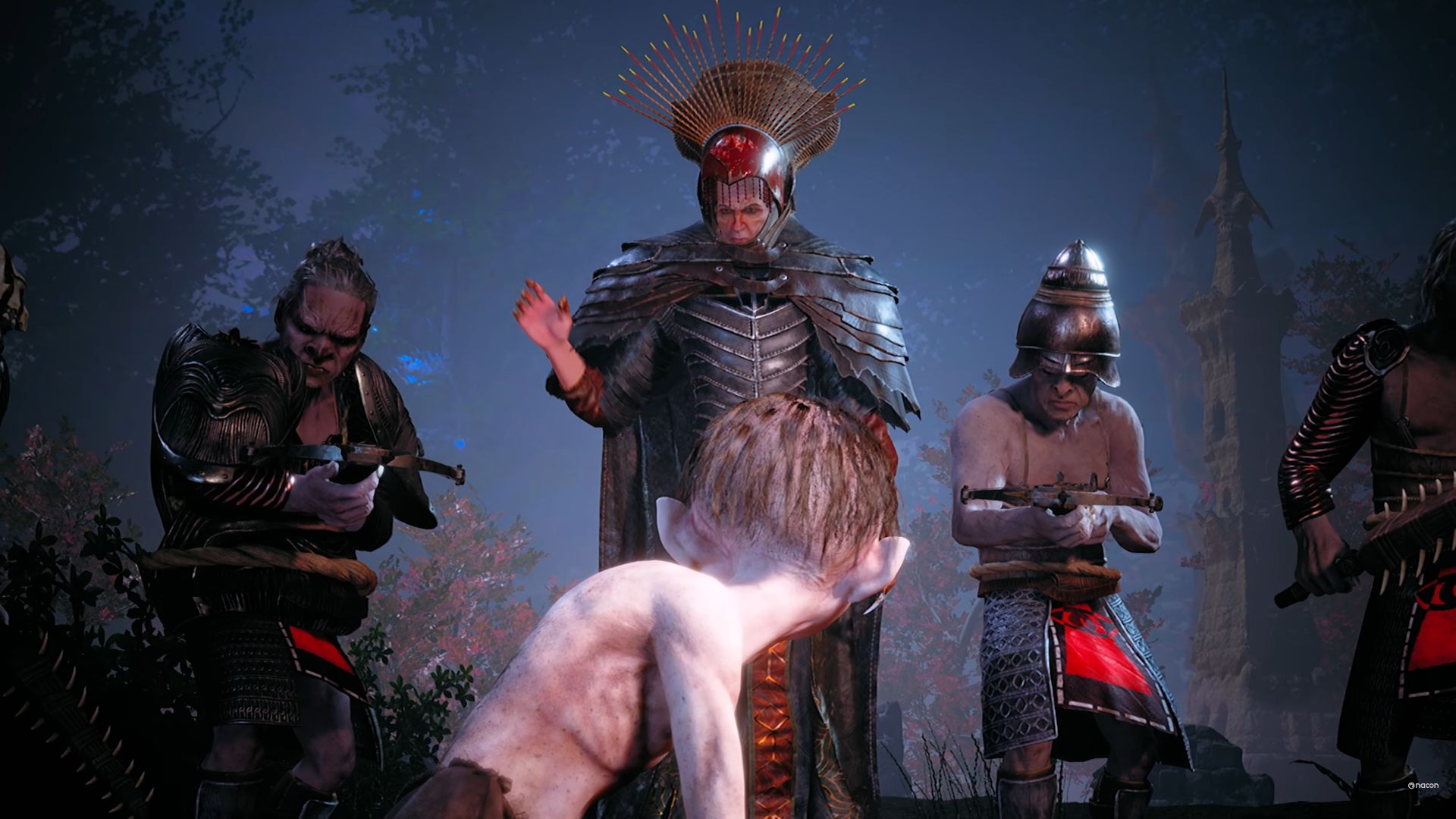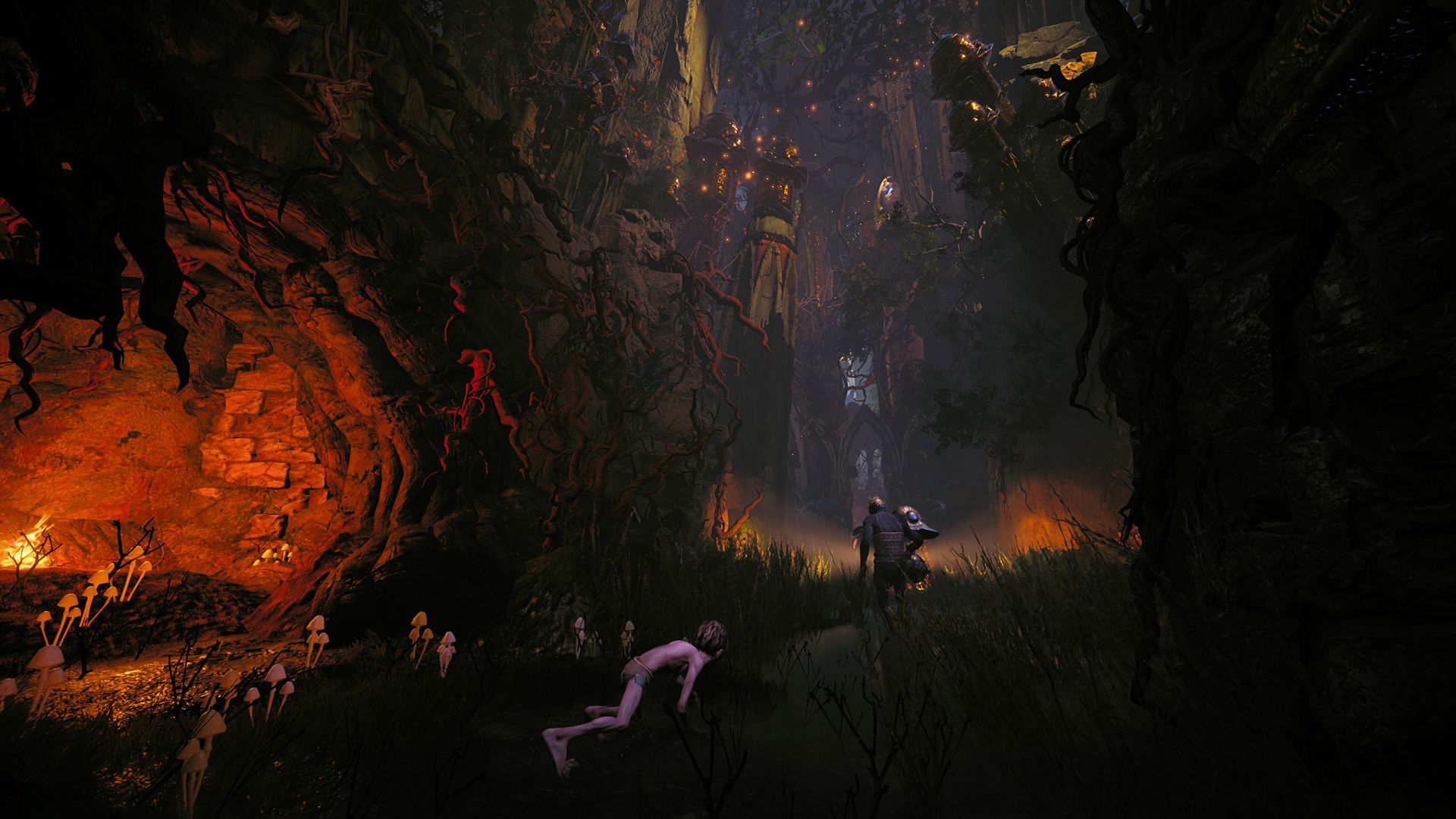We all remember the era of gaming where almost every game attached to a major license was guaranteed to be a dumpster fire. It wasn’t that long ago, after all. But we’re not in that era anymore. From Batman and Spider-Man to Star Wars and more, there have been plenty of cross-media properties that have had some excellent outings in the gaming sphere, and there are many more to comes still. But though that does seem to be the new norm, every norm has exceptions without fail- and we’ve had a pretty big and notable exception quite recently.
The Lord of the Rings: Gollum was looking like a curious prospect since the day it was announced quite a while back, attached as it was to one of the biggest properties in entertainment media, and thanks to its promise of a unique Lord of the Rings game that would differ from anything we had seen in the past. And, well, it did do that- though perhaps not in the way anyone would have wanted, from the people who made the game to the people who played it. The Lord of the Rings: Gollum is probably one of the biggest flops of recent years and has ben universally panned by critics and audiences alike, and it’s baffling to see it get to this point- even if there were plenty of warning signs in the years leading up to its release.
German developer Daedalic Entertainment announced The Lord of the Rings: Gollum back in 2019, and it was the briefest announcement it could possibly have been. The developer just released a logo, confirmed the name of the game, and as the name suggested, confirmed that the game would be shining the spotlight on the infamous halfling turned slave to the One Ring- and that was pretty much it. Of course, announcements of this sort aren’t exactly a rarity- though Daedalic Entertainment did say at the time that the game would be out sometime in 2021. For a game that was just a couple of years out from launch, not even seeing a single gameplay screenshot at the time of its reveal probably should have been the first red flag. Or an orange flag, at the very least.
Roughly 14 months later, Daedalic Entertainment showed the first glimpses of the game with its first batch of gameplay screenshots, though roughly a year after that, in early 2021, it was confirmed that The Lord of the Rings: Gollum had been delayed by a year, with a new launch window set for sometime in 2022. In 2021, we did finally begin getting glimpses of the actual game in action, first with a very brief sneak peak early on in the year, then with a much meatier showing a few months later during a presentation held by publisher Nacon (where a Fall 2022 launch window was also narrowed down), and then finally with a new cinematic trailer at The Game Awards in December 2021.
By the time 2022 rolled around, The Lord of the Rings: Gollum felt like a much more tangible prospect than it had until a year before that point, with Nacon and Daedalic Entertainment continuing to roll out new trailers and details for the stealth focused action-adventure title over the coming months as well, which also saw a September release finally being nailed down. A couple of months before release, however, the game was delayed yet again, with a May 2023 release being announced afterward. That, at least, was a date that it did manage to stick to, even going gold roughly a month ahead of launch- though when The Lord of the Rings: Gollum finally did hit, one couldn’t help but wonder how it had taken four years to get to only get to a point where it was, in so many ways, a broken game.
Instantly upon release, it was criticized widely by critics and players alike, and that criticism encapsulated what felt like every aspect of the experience. The visuals and the ugly character designs, the litany of bugs and technical issues, the shallow and repetitive gameplay, the terrible enemy AI and how it dragged down the already-rudimentary stealth mechanics, the mind-numbingly boring quest design, the voice acting and the writing, and so, so much more. In the weeks following its release, nothing in The Lord of the Rings: Gollum has been exempt from criticism. Many have called it flat-out one of the worst games they’ve played in recent years, and looking at the game, that sort of extreme criticism doesn’t even feel like it’s exaggerated.
And though the game has now become something of a goldmine for memes (perhaps taking some of the heat away from Redfall), The Lord of the Rings: Gollum’s failure is also something of a letdown, because at the very least, the game did have an interesting idea at its core. We’ve played as all manner of heroic and fabled characters in The Lord of the Rings games over the years, but not once did anyone imagine that there would one day be a game where Smeagol would be the protagonist. And he’s not a character that designing a game around should be impossible.
On paper, in fact, The Lord of the Rings: Gollum did have identify a few of the right areas where it could have delivered a solid Smeagol experience- using the character’s split personalities to drive an emphasis on choice and consequence mechanics, using his unique physical attributes to design an experience that was focused on stealth and parkour, using his particular perspective to view the well-known LotR story from a different lens. All of those ideas were the right ones- but again, they were right only on paper, because The Lord of the Rings: Gollum completely fumbled the execution of pretty much every single one of them, down to the last one.
And that’s the really disappointing bit- that in an increasingly risk-averse industry, Daedalic Entertainment decided to take a risk and set out to create a Lord of the Rings game that you wouldn’t necessarily expect to see. That they failed to make good on the unique promise of the premise they settled on is, to put it mildly, a bit of a bummer. Of course, the aftermath of the game’s launch has been a bit of a nightmare for the studio. No developer ever sets out to make a bad game, and seeing something you poured so much of your time into being roundly criticized by one and all can’t be easy, to say the least. There’s no denying, however, that the criticism for The Lord of the Rings: Gollum has been justified. More than justified.
Interestingly enough, recent reports have suggested that Daedalic Entertainment has another game based on the Lord of the Rings property in the works. The studio recently received a grant worth a little over €2 million in June last year from the Federal Ministry for Economics Affairs and Climate Action in Germany, which pertains to the development of, as the grant puts it, “a new project that will transport the player into a lush world full of mythical creatures and magic” and “tells a story from a character’s perspective that has never been told before”.
Looking at that description, you’d think it’s just referring to The Lord of the Rings: Gollum itself, though apparently, the grant money hasn’t been used for the panned action-adventure title’s development at all, and is instead related to the development of a different project based on J.R.R. Tolkien’s works, with the project’s completion currently planned for the second half of 2024, and development having started last year. A sequel to The Lord of the Rings: Gollum? A different game focusing on a different character? Maybe a weirdo game based on Treebeard?
Of course, the more important question is, should Daedalic Entertainment even go through with this project? Maybe the information is outdated and the developer has decided, in the aftermath of Gollum, that it isn’t going to proceed with the second game after all. Or maybe the studio is moving forward with the new title’s development- in which case, we really hope they take as many learnings as they can from the disaster that was The Lord of the Rings: Gollum. After all, there’s no shortage of learnings here.
Note: The views expressed in this article are those of the author and do not necessarily represent the views of, and should not be attributed to, GamingBolt as an organization.
The Lord of the Rings: Gollum – What Went Wrong?
Source: News Beginning




0 Comments